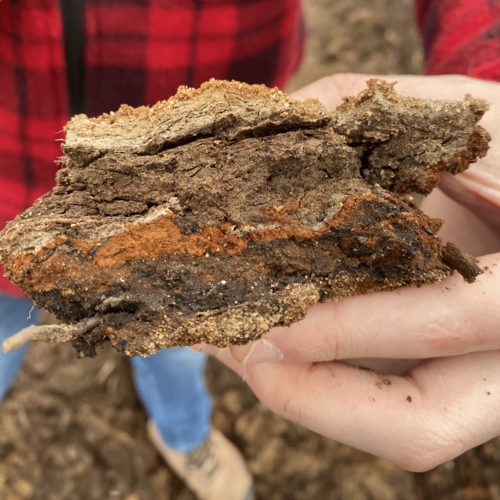It's predicted that where we grow our food will have to shift north as increasing temperatures due to climate change make it too hot for crops to thrive near the equator. But moving our crops north, specifically into the Boreal Forest, is not as simple as it sounds.
The problem is that the soil is not as fertile. Plus, one loses a lot of historically stored carbon that goes back into the atmosphere - carbon that is essential for the soil's health. With these challenges in mind, researchers from the University of Waterloo, in partnership with Memorial University, are testing what it takes to sustainably convert the land and explore what the biggest return in crop productivity is for the least amount of greenhouse gas emissions.

The soil in the south doesn't show the same horizons, layers, as seen in the north, which is very acidic.






